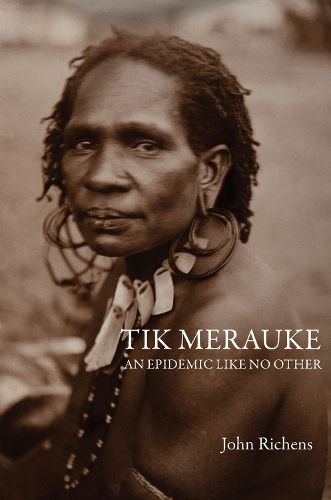Readings Newsletter
Become a Readings Member to make your shopping experience even easier.
Sign in or sign up for free!
You’re not far away from qualifying for FREE standard shipping within Australia
You’ve qualified for FREE standard shipping within Australia
The cart is loading…






A study of culture, colonialism, and an epidemic in New Guinea
When the Dutch government moved to stop headhunting by the Marind people of New Guinea in 1902 their actions unleashed new epidemics among a population already suffering from low fertility. Donovanosis (Tik Merauke in Marind), a rare, newly recognised sexually transmitted infection for which no medicine was available, affected huge numbers. This compelling book investigates the causes of this unique epidemic by exploring the fascinating lives and rituals of the Marind along with those of the missionaries, anthropologists, doctors, administrators, film makers and bird hunters swept up in the events. Tik Merauke shows how the discovery of an effective medicine brought relief, but how the coercive resettlement of the Marind into model villages has left a troubled legacy still felt by the surviving people.
$9.00 standard shipping within Australia
FREE standard shipping within Australia for orders over $100.00
Express & International shipping calculated at checkout
A study of culture, colonialism, and an epidemic in New Guinea
When the Dutch government moved to stop headhunting by the Marind people of New Guinea in 1902 their actions unleashed new epidemics among a population already suffering from low fertility. Donovanosis (Tik Merauke in Marind), a rare, newly recognised sexually transmitted infection for which no medicine was available, affected huge numbers. This compelling book investigates the causes of this unique epidemic by exploring the fascinating lives and rituals of the Marind along with those of the missionaries, anthropologists, doctors, administrators, film makers and bird hunters swept up in the events. Tik Merauke shows how the discovery of an effective medicine brought relief, but how the coercive resettlement of the Marind into model villages has left a troubled legacy still felt by the surviving people.